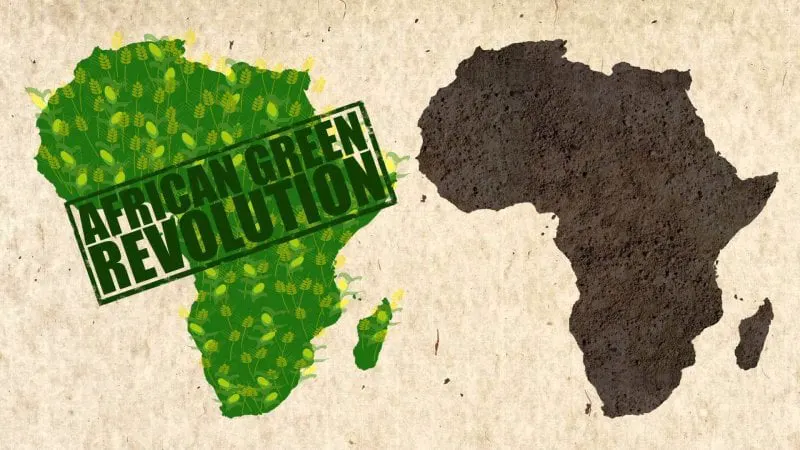‘Science diplomacy’: What the Cold War can teach Africa about battling hunger with GM crops
‘Science diplomacy’: What the Cold War can teach Africa about battling hunger with GM crops


It can be said the main problems facing the world are international in nature. No country can stand up today and say they will solve these complex issues on their own, with a case in point being the fight against the novel coronavirus that causes COVID–19.
It is against this background that Former British Prime Minister Gordon Brown is quoted in a report entitled New Frontiers in Science Diplomacy as saying, “Many of the challenges we face today are international and — whether it’s tackling climate change or fighting disease — these global problems require global solutions. This is why it is important that we create a new role for science in international policymaking and diplomacy to place science at the heart of the progressive international agenda.”
As Brown noted, scientific organizations were an important conduit for the discussion of nuclear issues between the United States and the Soviet Union throughout the Cold War. Today, science diplomacy offers an opportunity for countries in Africa to benefit from the complex scientific issues that are being discussed on the world stage.
With the increase in global population and rapid industrialization, coupled with the devastating impact of climate change on the agricultural sector, the promise and potential of biotechnology should be placed at the forefront by most African governments in order to end hunger and poverty. Since agricultural biotechnology is a contentious issue in most African countries, common ground must be reached. This can only be achieved if the policymakers in Africa are willing to accept the importance of biotechnology in developing improved crops that support sustainability, as well as food and health security, in the face of climate change.
Biotechnology is already all around us and plays a big part in our lives, providing breakthrough products in health as well as agriculture. Most African countries concentrate on political diplomacy. Now they must place an equal emphasis on science diplomacy so that their countries can fully benefit from new breakthroughs in scientific research.
As evidenced during the Cold War, science diplomacy was a conduit for achieving peace, security and prosperity in the Global North. Now we must use it to similarly benefit the African continent.
Lenganji Sikapizye is a journalist who currently works as a program assistant for the National Science and Technology Council, a statutory body that regulates Zambia’s science sector, and a 2019 Alliance for Science Global Leadership Fellow. Find Lenganji on Twitter @Lengtime
This article originally ran at the Cornell Alliance for Science and has been republished here with permission.Follow the Alliance for Science on Twitter @ScienceAlly

 | Videos | More... |

Video: Nuclear energy will destroy us? Global warming is an existential threat? Chemicals are massacring bees? Donate to the Green Industrial Complex!
 | Bees & Pollinators | More... |

GLP podcast: Science journalism is a mess. Here’s how to fix it

Mosquito massacre: Can we safely tackle malaria with a CRISPR gene drive?

Are we facing an ‘Insect Apocalypse’ caused by ‘intensive, industrial’ farming and agricultural chemicals? The media say yes; Science says ‘no’
 | Infographics | More... |

Infographic: Global regulatory and health research agencies on whether glyphosate causes cancer
 | GMO FAQs | More... |

Why is there controversy over GMO foods but not GMO drugs?

How are GMOs labeled around the world?

How does genetic engineering differ from conventional breeding?
 | GLP Profiles | More... |

Alex Jones: Right-wing conspiracy theorist stokes fear of GMOs, pesticides to sell ‘health supplements’




 Trust issues: What happens when therapists use ChatGPT?
Trust issues: What happens when therapists use ChatGPT? California, Washington, Oregon forge immunization alliance to safeguard vaccine access against federal undermining
California, Washington, Oregon forge immunization alliance to safeguard vaccine access against federal undermining Fighting deforestation with CO2: Biotechnology breakthrough creates sustainable palm oil alternative for cosmetics
Fighting deforestation with CO2: Biotechnology breakthrough creates sustainable palm oil alternative for cosmetics Viewpoint — Fact checking MAHA mythmakers: How wellness influencers and RFK, Jr. undermine American science and health
Viewpoint — Fact checking MAHA mythmakers: How wellness influencers and RFK, Jr. undermine American science and health 30-year-old tomato line shows genetic resistance to devastating virus
30-year-old tomato line shows genetic resistance to devastating virus The free-range chicken dilemma: Better for birds, but with substantial costs
The free-range chicken dilemma: Better for birds, but with substantial costs Viewpoint: Video — Big Solar is gobbling up productive agricultural land and hurting farmers yet providing little energy or sustainabilty gains
Viewpoint: Video — Big Solar is gobbling up productive agricultural land and hurting farmers yet providing little energy or sustainabilty gains ‘You have to treat the brain first’:Rethinking chronic pain with Sanjay Gupta
‘You have to treat the brain first’:Rethinking chronic pain with Sanjay Gupta
